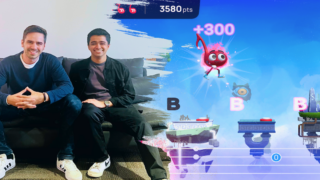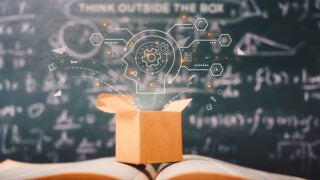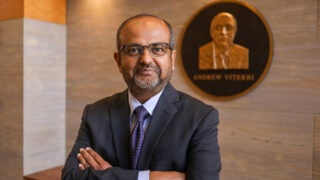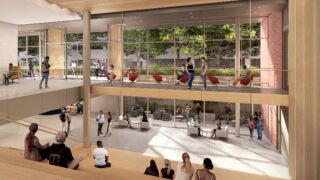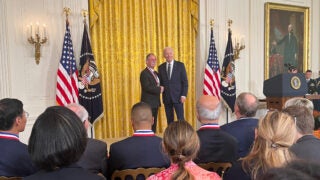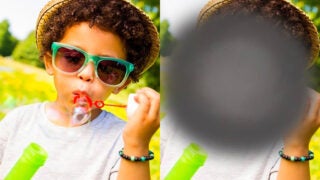With award-winning music education app Notey’s World, Adithya Bellathur and a team of USC alumni seek to encourage new guitarists and musicians.
Computer Science
News Listing
The honor recognizes innovation that has a real impact on the welfare of society.
“Computer science at USC is special, indeed,” says the head of USC’s newest school.
The new school, a key feature of USC President Carol Folt’s Frontiers of Computing “moonshot,” will act as a nexus for advanced computing research and education across the university.
The professor and USC alumnus is recognized at the White House with the highest honor for technological innovation.
People learn a lot by sharing and exchanging information. USC Viterbi experts say that computers can do the same with other computers.
As a member of the award-winning international group, Trojan Nathan Dennler is empowering LGBTQ+ voices in AI research.
Emily Nguyen and James Flemings were recognized for their contributions to deep generative models focusing on wildfire prevention and privacy in machine learning.
COMMENCEMENT: Chris Birmingham was inspired by his own health crisis.
A team of researchers including USC’s Emmanuel Johnson has been awarded a $20 million grant to fund a new artificial intelligence institute focused on AI in education.

